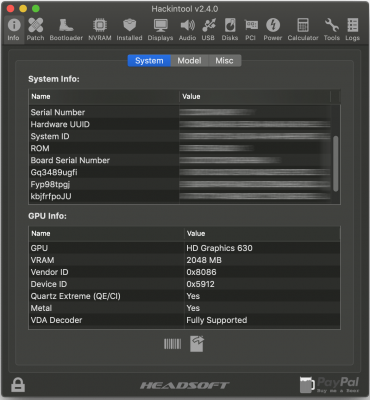- Joined
- Dec 31, 2013
- Messages
- 811
- Motherboard
- Huawei Matebook D
- CPU
- i5-8250U
- Graphics
- UHD 620
- Mobile Phone
Hi, thanks for your reply!!Can you copy your config.plist to your desktop and apply the patch using Hackintool then attach both your working config.plist and the one patched by Hackintool so we can compare the two.
I've created a tex file with the two patches:
one from the TonyMac Thread, the other from Hackintool.
I guess al the rest of the config is not necessary.


